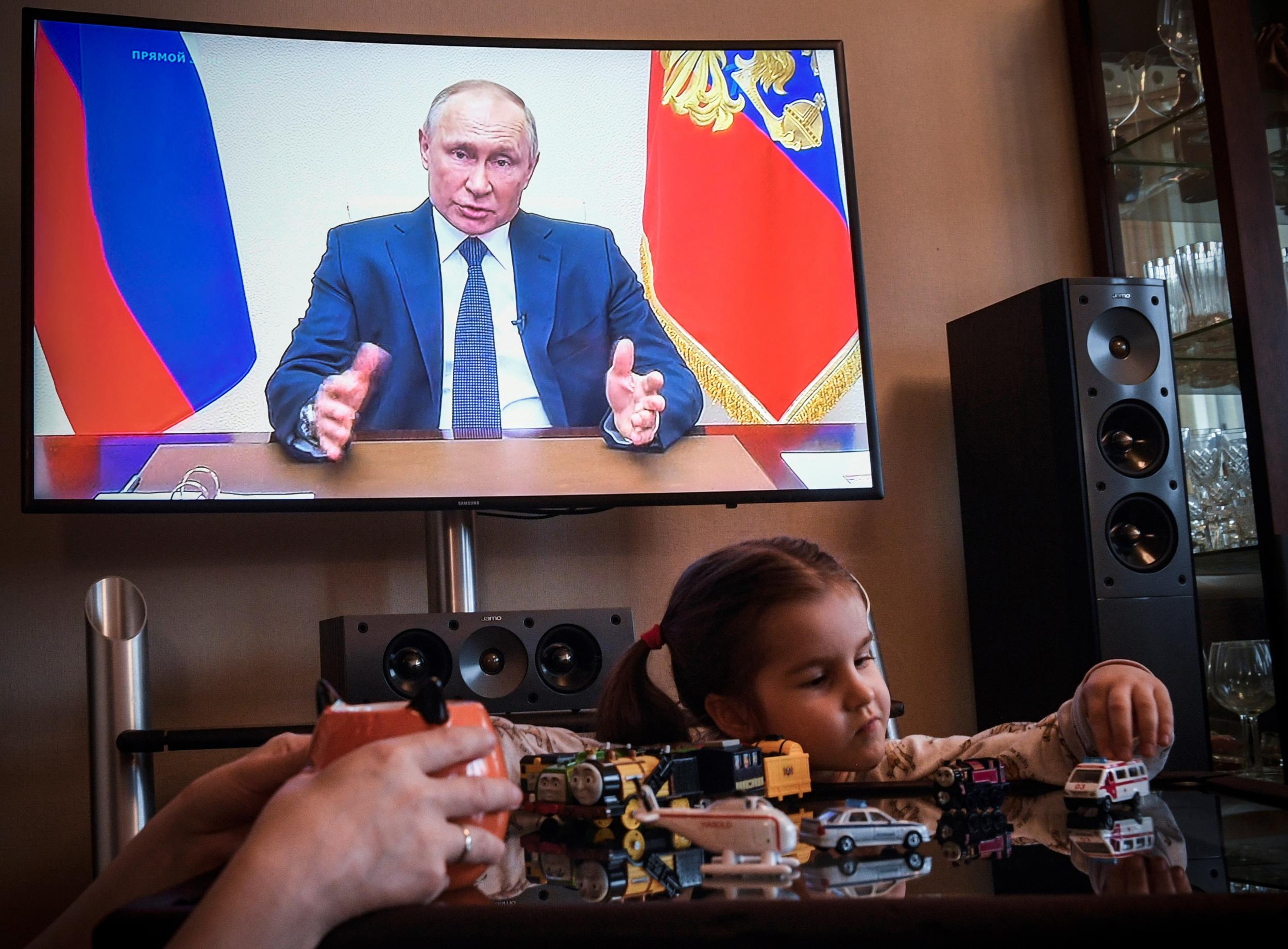How coronavirus wound up exposing the weakness of Putin’s power structure
As you go down his power vertical, chains of command resemble brittle fetters held together by compromise. For many, the overriding concern is about avoiding blame, writes Oliver Carroll


In a famous quote, Joseph Stalin described one death as a “tragedy” and a million as a “statistic”.
The phrase is almost universally misinterpreted; Stalin did not, apparently, think the latter was acceptable. But it does go some way to capture the numbness many of us feel when hit by daily updates of grimness.
Over eight weeks, as numbers have edged further and further north, we’ve almost lost our ability to count.
It didn’t help that we were fed dodgy figures from the start. Remember the early reports of a novel respiratory illness in Wuhan? Back then, hundreds of deaths seemed shocking. We now know they were a massive undercount.
In Russia, questions about the reliability of official data have persisted from day one. Just five weeks ago, Kremlin spokesman Dmitry Peskov insisted proper preparation meant there was “de facto” no epidemic in the country. Fast forward to today and Mr Peskov is himself in hospital, and Russia has the second-highest total number of cases in the world.
Yet even now, officials continue to insist on an implausibly low death count of 2,116.
This low mortality rate is the result of poor statistics. Anecdotally, local tests for diagnosing Covid-19 are no more than 30 per cent accurate. The same is true for how deaths are recorded (where Covid-19 is merely suspected as a cause, deaths are not counted). There may be an issue of deliberate manipulation.
Earlier this month, figures on excess deaths in April indicated an underreporting of 1,000 deaths in the capital. Some epidemiologists suggest the discrepancy may be even higher given the coronavirus’ ability to displace other respiratory viruses – they suggest waiting for yearly figures.
Some of Moscow’s leaders have belatedly embraced transparency. Mayor Sergei Sobyanin, in particular, has gained a reputation for blunt speaking: first contradicting claims that a Covid-19 plateau was nigh and then agreeing the coronavirus patient count might be double the current estimates.
The same cannot be said as you move away from Moscow. Going down Putin’s power vertical, chains of command increasingly resemble brittle fetters held together by band-aids and compromise. For many, the overriding concern is about covering one’s back and avoiding blame.
When we come out of the crisis, it may be that parts of Russia’s health system will have coped particularly well.
But lingering doubts about secrecy and statistical reliability mean that even if there is a story to tell, we may never truly have the confidence to tell it.
Yours
Oliver Carroll
Moscow correspondent
Join our commenting forum
Join thought-provoking conversations, follow other Independent readers and see their replies
Comments